I don't hold the cakes of Mengyang Guoyan in particularly high regard (excepting the special-production 2005 Laobanzhang). However, the mighty Singaporean storage of Keng turned the 2004 Bulangzu and the 2006 Banzhang into highly enjoyable, richly-stored affairs. The material of the latter was quite basic, but the storage made them very good indeed.
So, how about this "Dragon of Bulang"?
I don't remember buying this cake, but my spreadsheet indicates that I bought it for $20 in its year of release from Yunnan Sourcing. I can find no trace of it anywhere on the internet - only the "Star of Bulang" is mentioned out there.
Bizarrely, I don't even appear to have tried this cake. The wrapper is still sealed (pictured above), while my tasting notes have no record of any sample. Why did I buy it? Most importantly, is it any good?!
The big sticker is rather annoying, and reminds my of Douji cakes: one has to partially destroy the wrapper, because the huge sticker has a firm grip on the paper. After opening, it all looks a little ragged.
However, shown above, the cake is rather pretty to look upon. Its leaves are a darkish brown, and the aroma is fresh and inviting. It seems very much "alive", after five years in England.
The instructions included within the cake read "Use wimble to prize some pieces from the cake." I love the word "wimble", even though I'm convinced it doesn't exist, and resolve to call my pu'erdao by this term from now on.
I am genuinely surprised by the good quality of the leaves included in this cake: all the way through the bing, long leaves greet us (as pictured above). The result in the wenxiangbei [aroma cup] is complex, long, and sweet - most surprising indeed for a Mengyang Guoyan cake.
The image of the soup above shows all we need to know: it is thick, nicely aged, and (you won't be able to glean this from the photograph) retains tons of power. Its strong, forthright kuwei [good bitterness] marches through the mouth with the penetrating sweetness of hardcore Bulangshan leaves.
Darkened tobacco notes fill out the bass of the tea and keep things interesting. It manages to soldier on at full strength, without sewei [rough astringency] until well over 15 infusions, by which time I am bloated and crying like a child.
For a cake that I didn't know I owned, and which has spent its entire life here in England, I'm very pleased with it, and wish I'd bought more than one. Perhaps it's time to venture into Taobaowang once more...

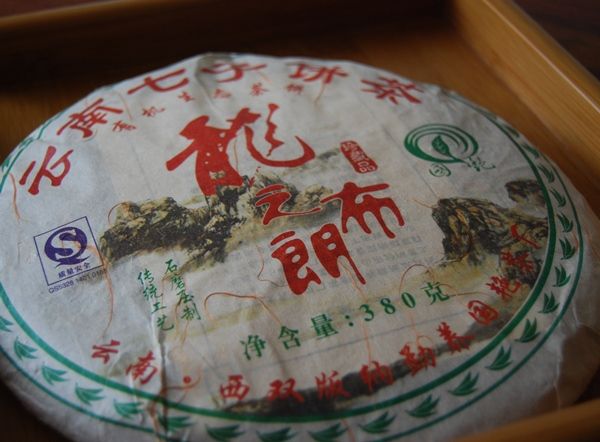
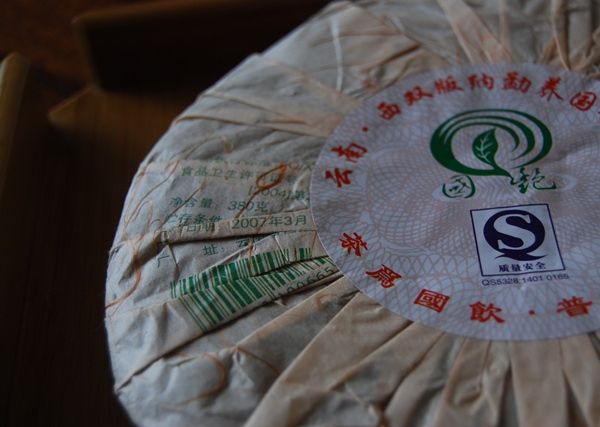
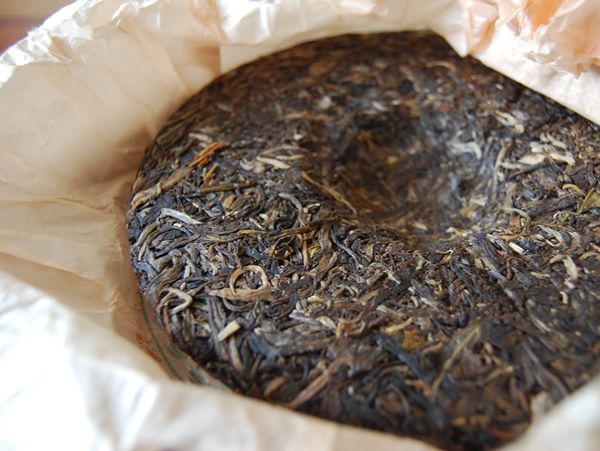
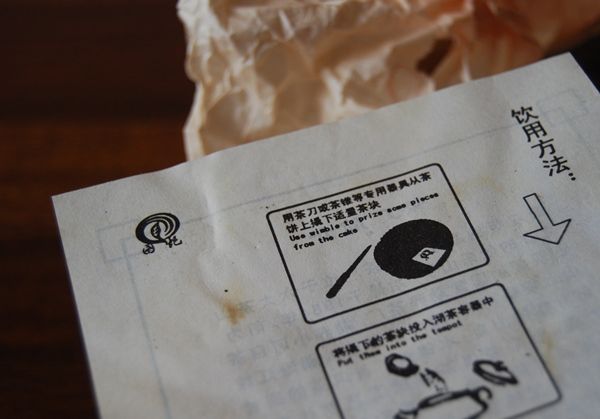
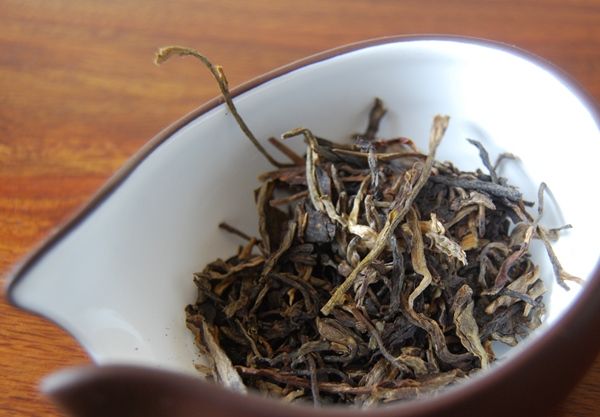
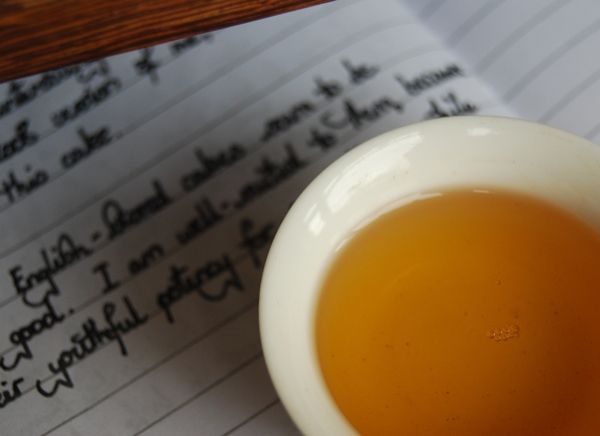
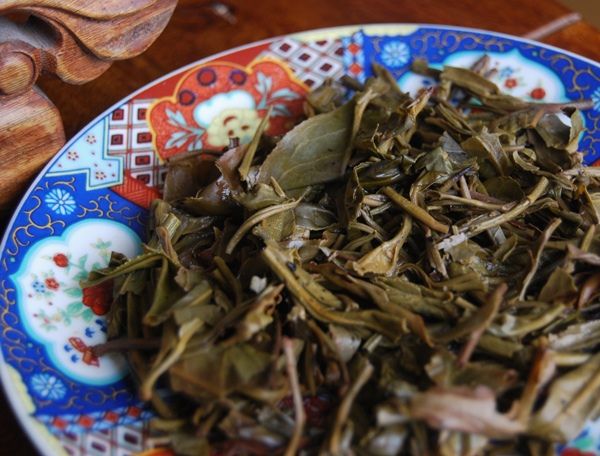
Interesting experience finding tea you don't remember buying. I had a similar thing happen, but it was a terrible flavored tea.
ReplyDeleteLong time reader, first time caller.
ReplyDeleteI, too, love to add to the ol' lexicon:
wimble [ˈwɪmbəl]
n
(Engineering / Tools) any of a number of hand tools, such as a brace and bit or a gimlet, used for boring holes
vb
(Engineering / Mechanical Engineering) to bore (a hole) with or as if with a wimble
[from Middle Dutch wimmel auger]
Sincerely,
The Dim Wimbler
Dear Trevor,
ReplyDeleteI must confess that I've had more than my share of howlers, too. That said, we often refer to such terrors as "tuition". Tea purgatory, if you will. :)
Dear Wimbler,
I like to wimble six impossible things before breakfast.
Toodlepip,
Hobbes
Dear Scholarly One,
ReplyDeleteI daresay I haven't had much practice!
Feather! Feather!
DW